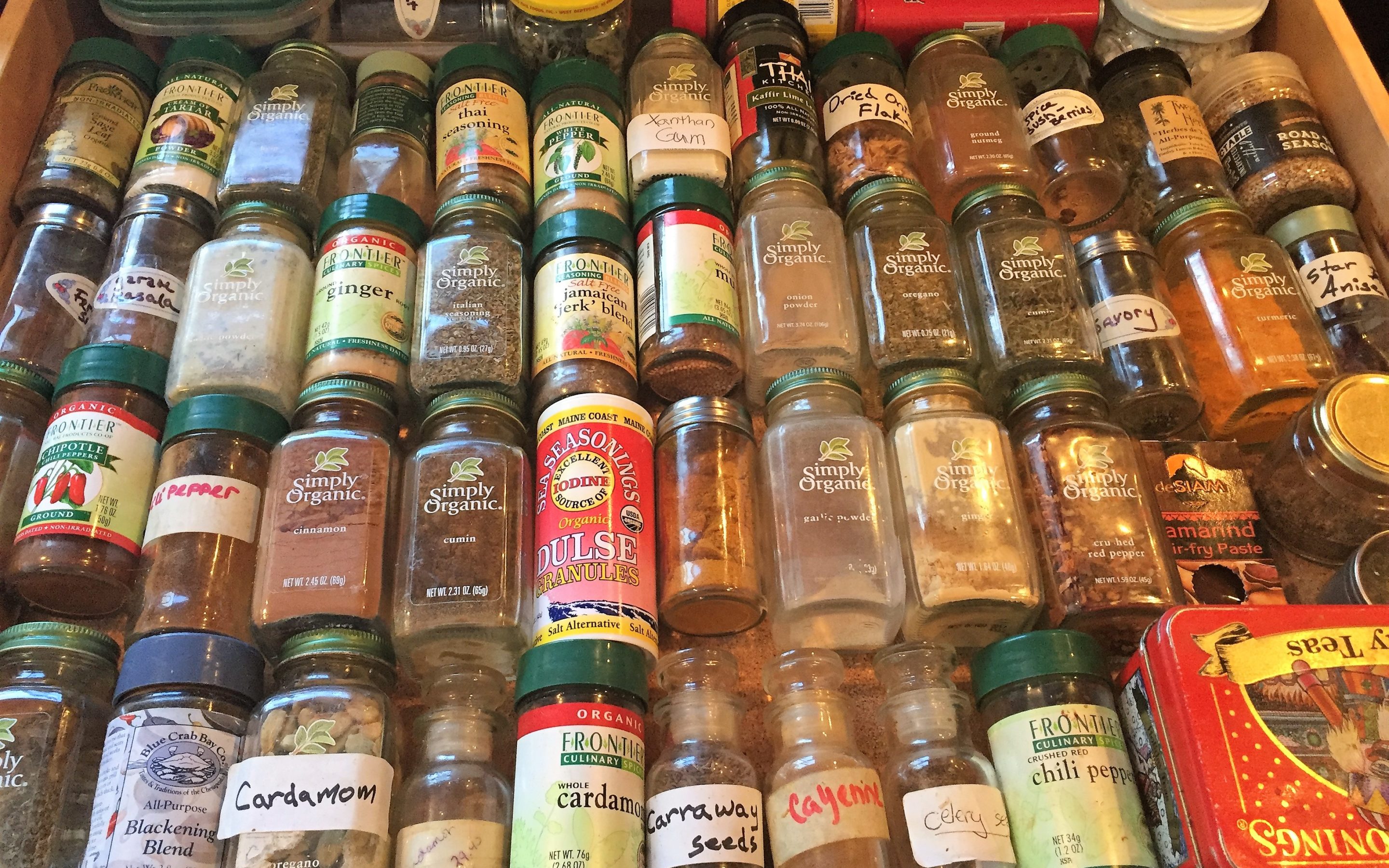A spice and herb collection are an important part of a kitchen pantry. Whether your collection consists of a small basket, a shelf or a drawer full, it’s hard to build flavor without them. Dried herbs and spices are used in small amounts, an inexpensive bang for the buck. Take a trip to another country by indulging in exotic aromas , experiment with different flavor profiles and discover something new and delicious.
Spices, the seeds, roots and/or bark of a plant are purchased whole or ground. Dried herbs are a plant or leaf of a plant. Herbs are commonly categorized as medicinal herbs or as culinary herbs. Both have a place in your kitchen pantry.
Although dried herbs and spices may seem pricey if you look at the price per ounce, the realty is you only use them in very small quantities. Is it important to buy organic herbs and spices? When you purchase organic, you are avoiding the concentrated pesticides and chemical residues and their toxic effects. Conventionally grown herbs and spices uses irradiation to kill off potential contaminants as a standard practice. Irradiation uses ionizing radiation, produces potentially carcinogenic by products as a result. Non-toxic practices are used in processing organic herbs and spices including dehydrating and freezing.
Other potentially common ingredients used in conventional herbs/spices are anti clumping chemicals and “MSG, (monosodium glutamate), a known carcinogen, endocrine disrupter and killer of brain cells, which may also be linked to the development of cardiac problems “and more, according to Dr. Frank Lipman. A variety of unpleasant reactions have been linked to these additives including headaches, skin rashes and more serious and long term Gastrointestinal issues.
Have you ever been tempted by the more economical bulk containers of herbs and spices? While purchasing in bulk may seem like a good idea, resist that temptation. Herbs lose their potency and flavor within 6 month- 1 year. Many markets offer herbs and spices that can be purchased in small quantities, so you can measure and buy what you need.
Fresh, dried herbs should have a distinct, strong aroma and flavor.
Generally, if a recipe calls for 1 Tablespoon of fresh herbs, that will translate into 1 teaspoon or 1/3rd of the amount of the dry herb. Some herbs have a more potent flavor, such as sage and rosemary so when converting start with ½ of the total amount and add in more as needed.
Try these tricks to optimize the flavors.
- When adding dried herbs, sprinkle into the palm of your hand and crush them between your fingers to release any oils and increase fragrance.
- Add in dried herbs, especially those that have a stronger and hardier flavor towards the beginning of cooking to liquids to extract flavors.
- Toast ground spices in a small amount of oil or fat until they develop a nutty and toasty aroma. Try toasting seeds whole in a dry skillet and leave whole or blend in small spice grinder for the freshest and brightest flavors.
- Mix dried herbs in a small amount of warm oil for 10-15 minutes. This works well for dressings and marinades.
Spices and herbs are the easiest way to enhance the flavors of real food ingredients. Reduce your reliance on salty and sugary flavor enhancers and waken up your taste buds!

